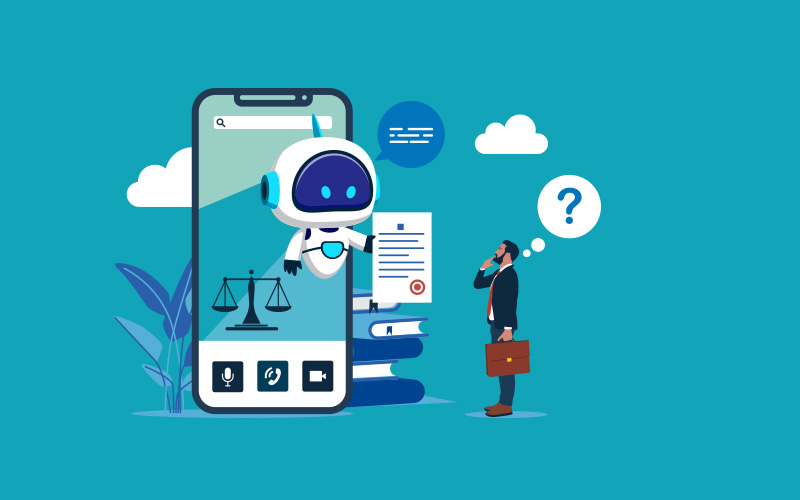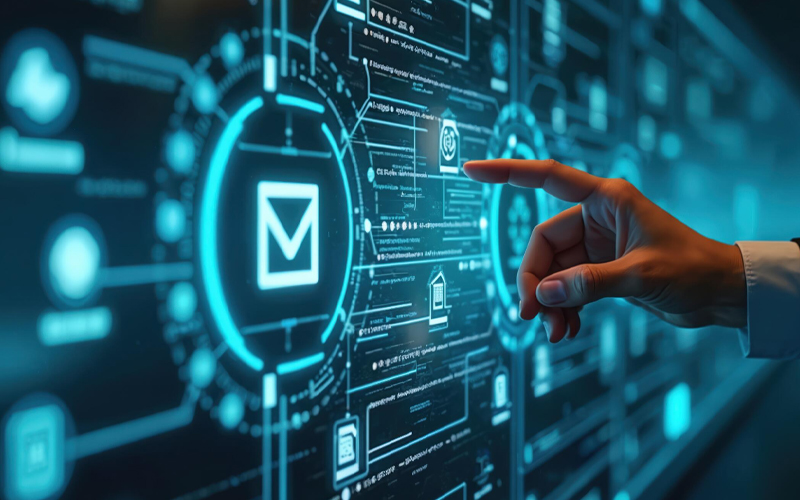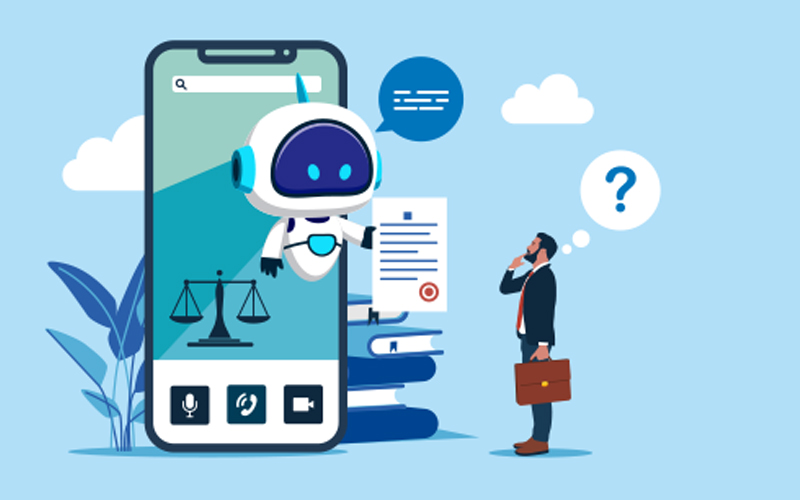According to Bloomberg’s Legal-Ops and Tech Survey, legal firms are investing more and more in technology today. The legal tech investments have increased by 48% in the past 12 months, and it is artificial intelligence (AI) that is spearheading the digital transformation in the legal ecosystem. A report by Global Legal Tech indicates that 41% of the respondents agree that artificial intelligence is fuelling the tech revolution in the legal sector.
What is legal technology?
Legal technology refers to the software delivering legal services and supporting the legal industry. Legal software is designed to support lawyers and other legal staff to boost the efficiency of legal processes and systems.
Role of artificial intelligence in the legal sector
AI has impacted different areas of the legal system and enhanced outcomes. AI-powered tools automate several routine processes like document review, contract analysis, legal research and more. AI-based software can analyse vast volumes of data and extract relevant insights to help lawyers with decision-making. The software also helps save time and effort of the lawyers significantly. There are several other benefits that AI offers to legal services.
How does AI and legal technology work together?
Here are some of the processes that AI enhances in the legal ecosystem:
- Data analysis
- Predictive analytics
- Contract reviews
- Fraud prevention
- Compliance monitoring
- Risk mitigation
- Analysis of market trends
- Boosts customer experience
- It provides detailed insights about clients such as their needs, pain points, what they feel about the brand, etc. These insights enable marketers to offer personalised services to their customers.
- AI-powered chatbots and virtual assistants are available 24/7. They address customer queries and resolve them promptly. This helps build trust and enhances customer experience.
- Automation speeds up different legal processes and reduces errors. This reduces delays in the delivery of services thereby boosting customer experience. Automation also simplifies the process of filling forms, etc., to provide a great customer experience.
- Based on the analysis of customer data by AI algorithms, marketers can create content tailored to the needs of their customers. Data analytics also helps marketers to create targeted advertising that resonates with the customers.
AI bots sift through vast volumes of data at a fast speed, extract relevant data and analyse it to provide valuable insights that legal professionals can use to make decisions. Manual data analysis is slow and prone to errors. AI systems overcome these shortcomings and enhance the efficiency of the process.
Machine learning (ML) algorithms make forecasts based on existing data sets. These forecasts help legal professionals plan and strategize their approach in specific cases such as settlement options, resource optimisation, etc.
AI software performs contract review and analysis too. It helps identify issues like non-standard clauses, inconsistencies in language, potential risks, etc. AI bots issue alerts in case of any error or discrepancy so that timely action can be taken.
AI algorithms analyse data to identify any suspicious activity that could indicate fraudulent transactions. Early detection of fraud prevents financial losses and reputational damage.
AI software automates compliance monitoring and due diligence processes. It analyses data to identify compliance issues and provides alerts for further review. It helps mitigate risks and ensure compliance.
AI software analyses historical data to identify potential risks. Legal professionals can take the required action to mitigate potential legal issues and litigation expenses.
AI tools can extract relevant data from different sources like legal publications, client feedback, social media and more. The data provides insights about market trends and competitor analysis to legal professionals. These insights help marketing teams develop strategies that are aligned with market trends and provide them an edge over their competitors.
Customer experience is the crux of the different activities performed by any business. AI in the legal sector helps legal firms provide a great experience to their customers in different ways:
In conclusion
Those in the legal field have to work with the complexities of legal processes and also ensure interoperability between legal systems. These aspects serve as bottlenecks that slow down processes and offer poor customer experiences. AI and legal tech work together to overcome the shortcomings of traditional systems and create efficient and accurate outcomes that delight customers.
How can Infosys BPM help?
Infosys BPM offers LPO (Legal Process Outsourcing) services. We work with our clients to provide customised solutions. We leverage cutting-edge technologies to automate, standardise and transform legal processes.








